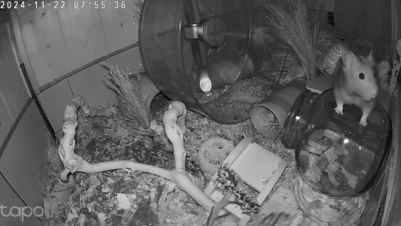THE NEW DONKEY HOSPITAL at the Donkey Sanctuary’s headquarters in Devon is a huge step forward in ensuring that donkeys housed at the sanctuary can receive the best possible veterinary care. At the same time it will double as a training facility for veterinary professionals and students from across the world. Surely only the most hard-hearted person (and certainly not a veterinary surgeon) could possibly query the worth of such a venture. After all, donkeys are just the cutest little… and therein lies the rub. I am a veterinary surgeon and I do have some serious reservations about the whole ethos of certain animal charities in terms of what it is they are doing. The Donkey Sanctuary stands out in this respect, but it is not alone. Now clearly in a democracy everyone and anyone is entitled to spend their money in any way they see fit within the confines of the law of the land. And a quick Google search and a look at the Donkey Sanctuary’s 2015 Annual Review reveals an income exceeding £35 million in that year alone. Which is a not insubstantial quantity of money and supports the view that Britain is a nation of animal lovers. One could of course consider that this was all to the good and that the interests of animal welfare merited this level of financial support. I suspect that this is the popular view. But I can’t help feeling a little uncomfortable at the huge amount of money that is being spent for what I would consider is probably a very marginal return on investment in terms of animal welfare. According to the 2015 Annual Review, there were some 6,600 donkeys in the UK under the Donkey Sanctuary’s care, of which nearly 5,000 were resident on Donkey Sanctuary farms and around 1,700 in foster homes around the UK. In other words, there are around 5,000 donkeys that no one other than the Donkey Sanctuary appears to want. Yes, that sounds harsh, but is that not the plain truth of the matter?
Cute and loveable
Now, as I have already alluded, donkeys are very cute and loveable animals with long furry ears, soulful eyes and a generally humble demeanour. Many of us will have fond memories of donkey rides at the beach, and dare I say donkey derbies, where youngsters at a village fete would race donkeys around a winding course while friends and family members bet on who would win. And of course their Biblical role was significant and well known back in the day and there was a very famous song/ Christmas carol entitled Little Donkey which reached number three in the charts in 1960 for Nina and Frederik, which I remember well. While all the above engenders warm and happy thoughts and feelings, is it any real justification for spending millions of pounds on keeping alive around 5,000 donkeys (that no one apparently wants) in the sort of luxury that many of our ageing and disabled fellow citizens could not possibly even dream of? Would anybody be prepared to spend a similar amount of money to care for an equivalent number of sheep, goats or pigs? Has anyone given serious thought to this blatant animal apartheid that seemingly gives credence to the mantra from George Orwell’s book Animal Farm that “all animals are equal, but some animals are more equal than others”? As far as I can see, donkeys have no greater ethical, moral or “spiritual”
right to life than any other species and don’t therefore merit gold
standard retirement (from birth in some instances) at huge, albeit
voluntary, expense. That quantity of money could very easily be put to improving animal welfare in all IS THE ‘FLUFFY EARS’ BRIGADE HOLDING ANIMAL WELFARE BACK? manner of more meaningful ways. That’s not to say that I am critical of all the Donkey Sanctuary’s work. Far from it in fact. The work they do in
developing countries to improve the care and welfare of working donkeys is rightly to be lauded as it improves the donkeys’ quality of life plus of course the lives of the people who rely on them for making a living or to produce food. In these circumstances, the use of money to help educate the owners and provide treatment to, or the means to prevent injury or debilitation of, the donkeys in question provides a solution to the welfare deficits experienced by
animals that are much-needed by their owners. But in the case of “homeless” donkeys in the UK, which are clearly surplus to the requirements of the society from which they emanate, humane euthanasia (for human food purposes if possible) is surely the
cheapest and indeed the most rational and, I would argue, ethical means by which to prevent their future suffering. Clearly there will be many reading this who will be aghast at such a suggestion,
but I would challenge them to come up with a rational and ethical argument to justify the current status quo without using the terms “cute”, “furry ears” and “soulful eyes”. The challenge, as in many walks of life, is how we can make the best use of scarce monetary resources to give the greatest return for what it is we are trying to achieve, in this case improved animal welfare. We can only do this
if we are prepared to ask difficult questions and discuss the possible answers with clear, rational, critical thinking. In my view, drifting along in a sea of self-congratulation and misplaced sentimentality will result in much wasted money with very little in
real terms to show for it.






